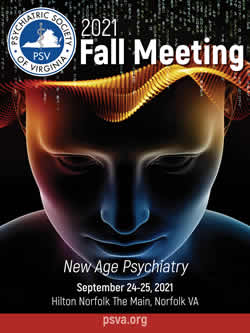Spring 2021 Issue |
|
General Assembly Session Recap
By Mark Hickman
Commonwealth Strategy Group
The Virginia General Assembly’s legislative session adjourned on March 1, 2021. The General Assembly convened its 2021 Regular Session on January 13, 2021. There was hardly anything regular about it. Due to the ongoing pandemic, the legislature met mostly virtually as it did for last year’s Special Session. The House of Delegates met entirely remotely, with only the Speaker of the House and close staff in the Capitol. The Senate itself again met in person at the Science Museum of Virginia in Richmond, with electronic participation-only options for the public, including lobbyists. The Pocahontas Building that houses legislator and staff offices remains closed to the public.
The General Assembly usually meets for a total of 46 days in odd numbered years—30 days required by the state Constitution and 16 additional days customarily agreed to at the beginning of session. However, the Republican minorities in both chambers announced they would block an extension, which requires a two-thirds vote, because they disagreed with the decision to meet virtually (in the case of the House) and to protest what they perceive as the Democratic majority’s legislative overreach during last year’s Special Session. This would have compressed the session into a 30-day period and make it extraordinarily difficult to complete the legislature’s work on bills and the state budget. After the customary extension failed, the Democrats introduced a resolution to operate for 30 days under the assumption that the Governor would then immediately call another Special Session for 16 additional days to allow for continued work. The resolution, which only requires a simple majority, was adopted.
To make the virtual session and schedule uncertainty more manageable, the House imposed a seven bill limit per Delegate, and the Senate imposed a twelve bill limit per Senator, not including studies or Constitutional Amendments. As expected, the Governor called a Special Session that began on February 10 for bills that passed the Regular Session. The Senate and House money committees also released their respective budgets on February 10.
2021 is a major election year in Virginia. The statewide offices of Governor, Lieutenant Governor and Attorney General, and all 100 seats in the House of Delegates, will be on the ballot in November. Election year politics often spill over into the legislative session. Major issues this session included further COVID-19 response, return to in-person school learning, marijuana legalization, criminal justice and court reform, abolition of the death penalty, healthcare policy and insurance coverage, and environmental rules. The state budget includes funding for state and state-supported employee raises, pandemic response, and other legislative priorities.
Reconvened Session
The General Assembly reconvened on April 7 for Reconvened Session, or what we commonly call Veto Session, to vote on the Governor’s proposed amendments to bills and the state budget. This year, the Governor did not veto any legislation, a sign of relative party unity between the Democratic majorities in the legislature and the Democratic Governor.
While there were no big surprises, there were some very close votes and plenty of rhetoric on hot button issues, including COVID-19, marijuana legalization, voting rights, guns, and the Parole Board controversy. Governor Northam had proposed several language and technical amendments to the state budget approved by the General Assembly during its legislative session that adjourned March 1. Many deal with COVID-19 response, aligning with or adjusting to federal spending and policy, and increasing funding by $6.3 million across various state agencies. The legislature accepted all the Governor’s budget recommendations.
The two most controversial amendments from the Governor relate to the legalization of marijuana and the ongoing controversy surrounding the Virginia Parole Board. The Governor proposed moving the effective date of marijuana legalization, specifically adult simple possession and use, and limited home cultivation, to July 1 of this year instead of in 2024 as the passed bill originally stipulated. However, retail sales of marijuana will not be allowed until that year. Proponents of the legislation compared legalization to alcohol—what adults and minors are, or are not, allowed to do with marijuana will be similar to what they are currently able to do with alcohol.
The Governor’s amendments to the marijuana bill narrowly passed the House along a mostly party-line vote. In the Senate, a similarly close vote resulted in a 20-20 tie (with one Democrat joining all Republicans in opposition). Lt. Governor Justin Fairfax cast the tie breaking vote in favor of the Governor’s recommendation. The budget also includes funding for a public awareness campaign on the health and safety risks of marijuana, and law enforcement training to recognize and prevent drugged driving.
The controversy surrounding the Parole Board, the Office of the State Inspector General (OSIG), and the Governor, who appoints Parole Board members, regarding the board’s release of several high profile and other inmates, has been reported extensively by the press. The Governor proposed an amendment to the budget to include $225,000 for an independent report on OSIG related to its investigation of the Parole Board’s release of Vincent Martin. The General Assembly narrowly agreed to the amendment along party lines, with Republicans spending a lot of time on the floor criticizing the move as not going far enough.
Lastly, Veto Session is often a time for members to announce their retirement from the General Assembly. This year, Delegates Nick Rush, Mark Cole, and Hala Ayala will not run for reelection. Delegate Ayala is a candidate for the Democratic nomination for Lt. Governor. Other Delegates who are also seeking higher office are simultaneously running for reelection to their House seats.
We expect the legislature to return in June for another Special Session to approve spending of new federal COVID-19 relief funding, and perhaps an additional Special Session on redistricting to determine legislative districts based on new census data. It will be the first redistricting cycle under Virginia’s newly formed redistricting commission.
PSV and Healthcare Legislation
PSV had a productive and busy legislative session this year. Below are the main bills we led, supported, opposed or engaged in, or monitored closely. These bills directly impact your practice, profession and patients.
PSV-supported Legislation
PSV led a coalition of medical and mental health providers to pass major prior authorization reform for mental health treatment medication, and to fund a Behavioral Health Loan Repayment Program to recruit and retain providers. We also joined with the Medical Society of Virginia in supporting telehealth access legislation and other favorable bills:
- Prior Authorization Reform. PSV led passage of legislation that prevents additional prior authorization on certain mental health treatment drugs, regardless if the drug is removed from the prescription drug formulary, after the initial prior authorization approval. Special thanks to our bill chief sponsors, Delegate Steve Heretick and Senator Jeremy McPike, for their leadership.
- Behavioral Health Loan Repayment. PSV led a budget amendment that includes $1.6 million for an educational loan repayment incentive that helps recruit and retain behavioral health practitioners in exchange for providing service to underserved Virginia communities. Practitioners would receive loan repayment for up to 25 percent of student loan debt for each year of health care service provided to the Commonwealth. The program provides the opportunity to fully pay off student loan debt while providing four years of service to the Commonwealth.
- Audio-Only Telehealth. PSV supported legislation that strengthens access to telemedicine and coverage by insurers for real-time audio-only telehealth services. The legislation also requires Medicaid to identify and reimburse audio-only telehealth services.
- Mandatory Outpatient Treatment (MOT) Reform. A comprehensive reform bill makes significant changes to Virginia’s MOT to clarify and streamline patient eligibility and the role of the courts, CSBs, and physicians in the process. The bill also lengthens an MOT order from 90 to 180 days. We believe this legislation strengthens MOT access and care.
- Behavioral Health Commission. PSV supports the establishment of a permanent Behavioral Health Commission. The Deeds Commission, which was a temporary joint subcommittee, had voted to recommend making itself permanent, so Senator Creigh Deeds introduced a bill and related budget amendment. The commission will continue to study, make recommendations for, and provide oversight of Virginia’s behavioral health service system.
- Physician Wellness. Legislation passed to expand the SafeHaven physician burnout prevention and mental health program, established last year, to other clinicians and medical students to support provider wellness.
- COVID-19 Workers’ Compensation. Through December 31, 2021, COVID-19 causing the death or disability of health care providers will be presumed to be an occupational disease compensable under the Workers’ Compensation Act.
- Court consideration of mental disorders. As described by NAMI Virginia, legislation will establish the admissibility of evidence of a defendant’s mental condition at the time of the alleged offence in any criminal case. Evidence offered by the defendant to establish the underlying mental condition must also show that the condition satisfies the diagnostic criteria for a mental illness, developmental or intellectual disability, or autism spectrum disorder as defined in the most recent edition of the Diagnostic and Statistical Manual of Mental Disorders of the American Psychiatric Association.
- Budget. In addition to the Behavioral Health Loan Repayment Program, the state budget contains funding for state psychiatric hospital census reduction, further behavioral health system enhancement and redesign, permanent supportive housing, the Marcus Alert system, and a Crisis Call Center Fund.
PSV-opposed Legislation
PSV joined forces with the Medical Society of Virginia to oppose or amend major legislation adverse to physicians and dangerous or unsafe for patients:
- Scope Of Practice Expansion. We fought legislation to permanently expand or elevate scope of practice or licensure for nurse practitioners, naturopathic doctors, and certified nurse midwives. We also closely monitored acceptable bills on pharmacist scope, clinical nurse specialists, and physician assistants.
- Medical Malpractice Cap Removal. We defeated a bill that would have removed or allowed a judge to ignore Virginia’s current medical malpractice cap, which would raise costs for both physicians and patients, threaten access to care, and create a dangerous precedent.
- Unsound Evidence Of Mental Competence. We defeated legislation that would have allowed CT, CAT, or MRI scans to demonstrate proof of competency and lack of impairments in court proceedings. These scans often cannot detect or reveal certain brain abnormalities, nor prove mental competency or impairment. A thorough mental status examination, at times augmented by more detailed psychological testing, should remain bedrock components of a competency exam.
- Lowering Licensure Standards. We defeated a bill that would have allowed licensure of licensed professional counselors (LPC) without an examination. This legislation would have lowered standards for LPCs, a potentially harmful precedent for patients and mental health providers.
- Mandated Litigation Assistance. We defeated a bill to require medical practitioners to provide litigation assistance to treated patients and their attorneys.
- Medical Debt Limitations. We defeated a bill to set the statute of limitations to collect medical debt at three years.
- Provider And Health Insurance Mandates. Bills supported by the health insurers that would impose several restrictions and requirements on providers in a purported effort to prevent discrimination and increase equity and cost transparency were sent to study. Another bill was amended to only bar discrimination of patients who are involved in litigation due to a vehicle accident, except for patients who are suing the provider for malpractice or who have filed a complaint against the provider with the Board of Medicine.
2021 Outlook and Elections
In addition to following the Reconvened and Special Sessions this year, we will closely monitor implementation of the new prior authorization legislation, and review current prior authorization requirements, to support awareness and compliance by prescribers and the health plans. We will continue to work on strengthening mental health parity data collection and compliance. PSV will likely also be invited to participate in behavioral health study groups mandated by the General Assembly.
2021 is a major election year in Virginia. In addition to the offices of Governor, Lt. Governor and Attorney General, all 100 seats in the House of Delegates are on the ballot. Retirements, primary challengers, and contested House races across the state are making this a highly competitive election cycle.
What is PSYCHMD PAC?
PsychMD Political Action Committee (PAC) is our profession’s voice in the political process. Contributing to the PAC is investing in your profession, patients, and high-quality care from psychiatrists. A strong and robust PAC demonstrates PSV’s leadership and investment in the political and policy process.
Your support is crucial to our advocacy success! We must be proactive and prepared. Contributions to the PAC will help raise the visibility and profile of psychiatrists, connect us to new and returning legislators, and continue to build productive relationships with key General Assembly members. As always, we continue to support members of the legislature who care about issues affecting our profession and our patients. We support both parties and their leadership through individual legislator and caucus events.
Please make your contribution now. PsychMD PAC helps raise our visibility among policymakers, connects us to new and returning legislators, and enables us to continue to build productive relationships with key General Assembly members and caucus leadership.
Given the tough issues and close elections we expect this year and next session, we ask that you contribute at least $250.
- Please contribute ONLINE or make your check payable to PsychMD PAC and mail it today to 118 N. 8th Street, Richmond, VA 23219.
Thank you to all our contributors and for your leadership and support!
YOUR NEWSLETTER IS NOW AVAILABLE ON YOUR SMARTPHONE AND TABLET!
JOIN PSV TODAY!
PLAN NOW!
PSV 2021
FALL MEETING
September 24-25, 2021
Hilton
Norfolk The Main
Norfolk, VA
APA Find a Psychiatrist
Are you accepting new patients?
Opt into APA’s Find A Psychiatrist database. To view the functionality or opt-in,
CLICK HERE
FYI: A link for this option has been added to the PSV website. Select the About button and then Find a Psychiatrist from the drop down.




